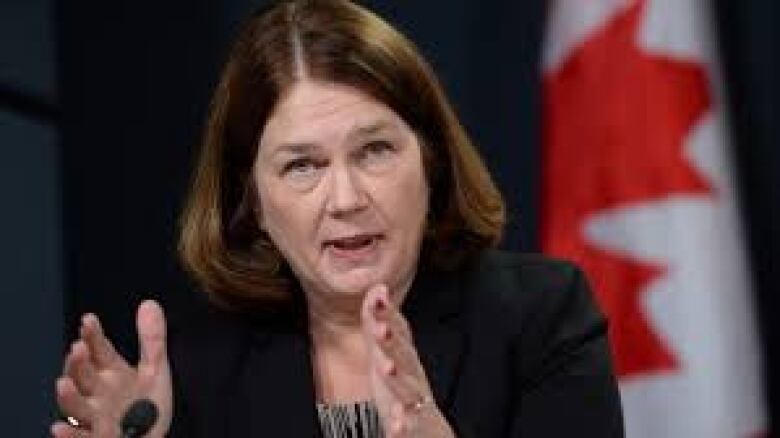Health-care service will suffer without more federal cash, Ontario minister says
Provincial, territorial ministers call on federal Health Minister Jane Philpott to renew health accord

Queen's Park and Ottawa remain at odds over how much the upper level of government should contribute to the province's health budget even as the federal health accord negotiations dominated this week's countrywide health ministers meeting in Toronto.
- Health ministers wrap tense talks with no agreement on federal health funding
- ANALYSISAmid funding debate, a tweet causes trouble among health ministers
Ontario Health Minister Eric Hoskins says that a population that's both growing and rapidly aging makes it impossible to maintain the current standard of care unless Ottawa honours the terms of 2004 accord.
Health care makes up the lion's share ofeach provincial budget, with $51.8 billion set aside for Ontario'sthis fiscal year. Hoskins said that about 80 per cent of that comes from Ontario tax revenue, while the Canada Health Transfer covers the rest.
The Ontario budget has ballooned since the federal health accord was first signed; the health budget for 2003-2004 was $29.2 billion.
It's a trend, however, that's been mirrored across the country as people live longer and require more care, particularlypalliative care in old age.

Finding 'efficiencies'
Hoskins said that Ontario has tried to "find efficiencies and improve our health-care system" but that there are different pressures now.
"We're finding that the level of funding really needs to reflect the needs of the populations," the minister said. "We've got a growing population, for example, here in Ontario. We've got an aging population and other factors that drive up health-care costs, health-care inflation."
The 2004 federal health accord had enshrined a promise to boost the amount that Ottawa transferred to the provinces for health care by six per cent each year. It had been part of an attempt to set and meet new countrywidestandards for wait times to see surgeons andspecialists.
The accord also acknowledged the stress that the aging population had begun to put on the health-care system.

The previous Harper government did not renew the accord, marking 2016 as the final year to honour the longstanding funding agreement.
Although the Liberals had campaigned on a promise to renegotiate what governed the Canada Health Transfer, there were no specifics about what exactly that might look like.
Funds for home care
Instead,Health Minister Jane Philpott has promised an increase of three per cent to the annual transfers each year as well as additional funding that must be dedicated to homecare and palliative care.
Hoskins and other ministers said that's effectively a cut to resources, because the transfers won't be increasing at the previous rate of six per cent.
"There's no distance between the federal and provincial and territorial health ministers when it comes to where we should be investing," he said in an interview Tuesday. "All we're asking ofthe federal government is that they maintain their partnership with us in a respectful fair, fashion and that they do not further diminish the percentage contribution [that] they provide."
With files from CBC's Power and Politics












_(720p).jpg)


 OFFICIAL HD MUSIC VIDEO.jpg)
.jpg)



























































































